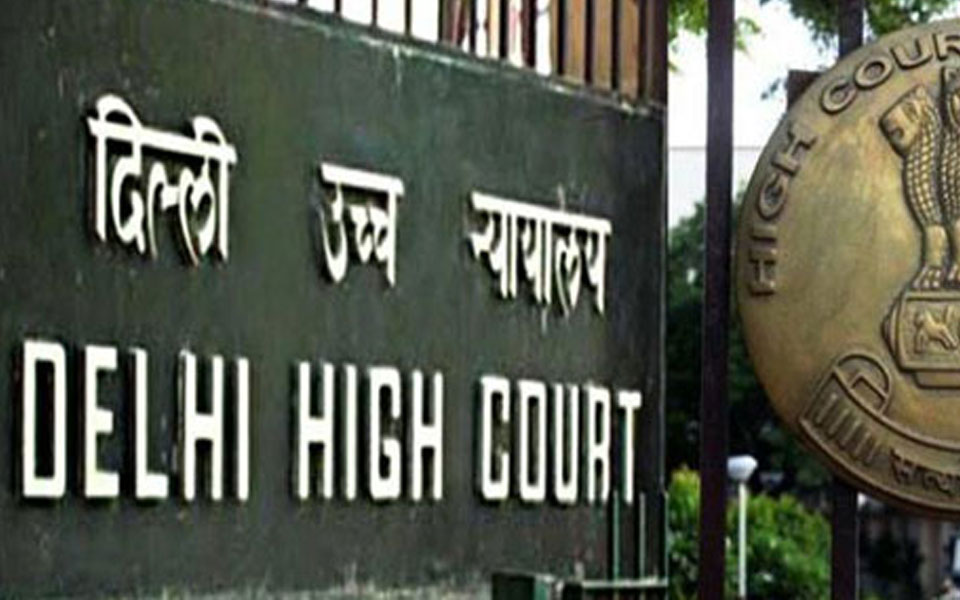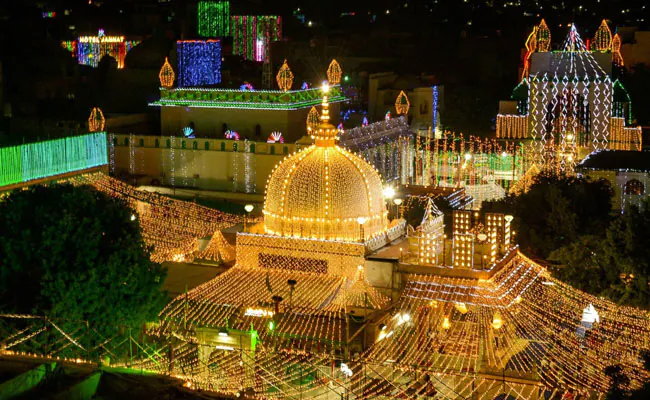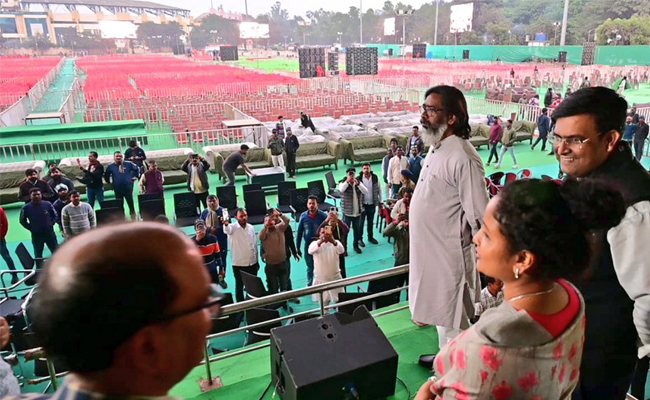New Delhi, June 25 : In a relief to residents, the Delhi High Court on Monday asked authorities not to axe till July 4 the 16,500 trees sanctioned by the Centre for the redevelopment of six south Delhi colonies.
A bench of Justice Vinod Goel and Justice Rekha Palli directed the National Buildings Construction Corp (NBCC) not to cut the trees till the next date of hearing on July 4.
The court also permitted the petitioner to challenge the orders passed by the authorities giving permission to cut the trees for these residential projects.
During the hearing, the court asked NBCC: "You know the effect it would have? I understand if it was widening of a road or something inevitable. Can Delhi afford it today? Keep your hands off till July 4?"
The petitioner, an orthopaedic surgeon, has sought the setting aside of the terms of reference and the environment clearances granted to the project by the Environment Ministry, saying it would lead to felling of over 16,500 trees.
The six south Delhi colonies where the trees would be felled are Sarojini Nagar, Nauroji Nagar, Netaji Nagar, Thyagaraja Nagar, Mohammadpur and Kasturba Nagar, the petition by Kaushal Kant Mishra said.
All these areas are home to government employees where the central government is pulling down houses built in the 1950 and replacing them with high-rise buildings.
Besides the NBCC, the project is also being executed by the Central Public Works Department (CPWD).
Let the Truth be known. If you read VB and like VB, please be a VB Supporter and Help us deliver the Truth to one and all.
Bengaluru: A recent study commissioned by the Karnataka government has revealed that 28% of the state's 328.55-km coastline is experiencing high levels of erosion. The report, submitted by the National Centre for Sustainable Coastal Management to the Environment Department, shows that the length of eroding stretches has more than doubled, from 43.7 km in 1990 to 91.6 km in 2024.
Titled Shoreline Management Plan Along Karnataka Coast, the report highlights the impact of increased sediment barriers and upstream activities on coastal erosion. It also calls for the adoption of nature-based solutions to counter the effects of climate change and human activities.
District-wise findings
The coastline of Uttara Kannada, Udupi, and Dakshina Kannada spans 328.55 km, with varying levels of erosion across the districts:
Uttara Kannada: Although 28% of its 193-km coastline is eroded, the district accounts for 39% of the state’s total erosion due to increased coastal development.
Udupi: Despite 43% of the coastline being protected by seawalls, 38% remains affected by erosion, contributing to 32% of Karnataka's overall erosion.
Dakshina Kannada: The district’s 37-km coastline faces “critical” erosion, with 39% of its stretches severely impacted, including areas such as Uchil and Batapady.
The report warns that coastal erosion threatens habitations, estuarine environments, mangroves, mudflats, and fish landing areas.
Recommendations
Identifying 44 critical erosion zones, the report suggests:
1. Beach nourishment through sand replenishment.
2. Rehabilitation of sand dunes and bioshields.
3. Mangrove afforestation to stabilise coastlines and support fisheries.
The findings will inform the Karnataka-Strengthening Coastal Resilience and the Economy (K-SHORE) project, which prioritises nature-based solutions over hard approaches like seawalls. R Gokul, Additional Principal Chief Conservator of Forests, stated that the Rs 840-crore project will focus on mangrove planting, beach nourishment, and tackling plastic pollution. These measures aim to protect the coastline and boost the blue economy.
The report will also guide the Karnataka State Coastal Zone Management Authority in reviewing coastal development proposals.




